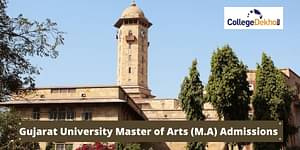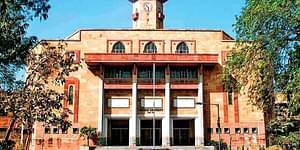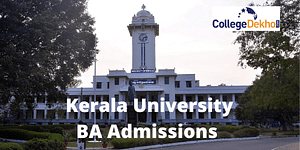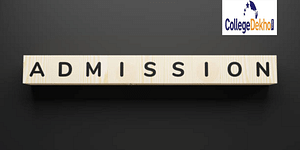BA Kannada
About B.A. Kannada
Bachelor of Arts in Kannada or B.A Kannada is a three-year undergraduate degree programme, which is offered by various public and private institutions in India. In B.A. Kannada programme, the students are taught about the philosophy, literature, and linguistics of the Kannada language. The Kannada language is roughly spoken by around 40 million people in Karnataka and in other states like Kerala, Tamil Nadu, Telangana, Andhra Pradesh etc by linguistic minorities.
Kannada is the regional language of Karnataka. Students having an interest in regional language learning can enroll in this course. Interested candidates can join the course only after their 12th. Candidates are mostly admitted based on the qualifying examination scores. The aim of the B.A. Kannada is to help the students learn the language proficiently. Candidates will be able to learn about Kannada literature, linguistic methods etc. Apart from that, the education on the cultural history of the language is also imparted through this course. Candidates after learning this language course will be able to avail some satisfying job roles. With improved language skills, they will be able to get into interesting career options in various fields like teaching, translation, content writing etc.
B.A Kannada Course Highlights
The highlights of the B.A Kannada course is given in the table below -
Level of Programme |
Undergraduate |
|---|---|
|
Duration of Programme |
3 Years |
|
Eligibility Criteria |
10+2 qualified students from any recognised Board (who had Kannada at the qualifying level or is proficient in Kannada) are eligible |
|
Examination Type |
Semester Wise |
|
Admission Process |
Both Entrance Test Based and Merit-Based admission process |
|
Average Course Fee |
INR 2,000/- to 8,000/- |
|
Average Starting Package |
INR 2 LPA to 5 LPA |
|
Usual Job Profiles |
Teacher, Interpreter, Translator, Reporter etc |
Why Study B.A. Kannada?
Learning languages is always of great importance. Students often show their eagerness in learning and gaining skills in regional languages. Jobs and salaries are the deciding factors for choosing any course. These days, a large number of students obtain B.A. Kannada courses. There are ample benefits to pursuing a Bachelor’s degree in Kannada. Some important benefits are cited below:
- The B.A. Kannada course helps the candidates to be skilled in the language
- One of the most important benefits is that through the B.A. in Kannada, candidates gain learning on scriptures, prose, poems, etc.
- Various job opportunities are there for the graduates of this field including writers, teachers, researchers, news anchors, etc.
- The graduates of this field are highly desirable in the publishing and writing industry. The teaching industry offers an effective career for them too
- As the candidates become skilled in linguistics, the jobs of translators and interpreters appear to be effective careers for them
- Graduates of this field are hired both in the public and private sectors with decent salary packages
Table of Contents
B.A. Kannada Eligibility Criteria
Students who have passed their 10+2 exam from a recognised Board with a minimum aggregate of 50% (45% for OBC/SC/ST) are eligible to apply for the B.A Kannada programme provided they should have either studied Kannada at the qualifying level or must be proficient in the language to be given preference.
B.A Kannada Admission Process
B.A Kannada admission process is different in different universities/institutions. Some give admission on the basis of the qualifying exam marks of the applicants and some conduct an entrance exam to gauge the applicants’ suitability to join the undergraduate programme.
A general admission procedure for B.A. Kannada course is described below:
For both merit-based and entrance-based admission, candidates need to visit the official websites of their desired colleges and apply online. They are required to fill up an application form with their personal and academic details. In the colleges where merit-based admission is followed, the authority prepares a merit list based on the scores of previous qualifying examinations. In the entrance exam-based admission, the rank list is prepared based on the entrance exam scores. After the merit list release, selected candidates are called for the counseling sessions and offered final admission. Whatever means is followed for the admission process, candidates’ potential is evaluated before getting them admitted in B.A. in Kannada courses.
B.A Kannada Course Fee
The average course of B.A Kannada usually varies from institution to institution and depending upon the fact if the institution is public or private. Usually, the average B.A Kannada course fee ranges between 2,000 rupees and 8,000 rupees per year, which is again variable institution wise.
B.A. Kannada Top Colleges in India
B.A. Kannada is offered by some top colleges in India. Tabulated below are some of them:
|
Top College |
Location |
|---|---|
|
Ambli Dodda Bharamappa First Grade College |
Davanagere, Karnataka |
|
Anjuman Arts and Commerce College |
Belgaum, Karnataka |
|
Anjuman College for Women |
Bhatkal, Karnataka |
|
ARM First Grade College |
Davanagere, Karnataka |
|
Basudev Somani College |
Mysore, Karnataka |
|
BES College |
Bangalore, Karnataka |
|
Akkamahadevi Mahila Mahavidyalaya |
Bidar, Karnataka |
|
Besant Women's College |
Mangalore, Karnataka |
|
Bhaurao Kakatkar College - BK |
Belgaum, Karnataka |
|
BR Tambakad Arts, Commerce and Science First Grade College |
Haveri, Karnataka |
|
Bhandarkars Arts and Science College |
Udupi, Karnataka |
B.A. Kannada Syllabus
Check out the latest B.A Kannada Syllabus from the table given below -
S.No |
Particulars |
|---|---|
|
Year I |
|
|
Year II |
|
|
Year III |
|
B.A. Kannada Books
Listed below are some of the books for B.A. Kannada that the students can use for the betterment of their learning:
- Panchajanya by K.V.Puttappa
- Kadaliya Karapura by Dr. H. Tipperudra - Swamy
- Vachana kammata by K Marulasiddappa . k r Nagaraj
B.A. Kannada Career Options and Job Prospects
Here is a list of career opportunities a Kannada graduate can target after completing his/her studies -
- Tour and travel guide
- Translator
- Journalist
- Interpreter
- Freelancer
- News anchor
- Teacher
B.A. Kannada Job Profiles
The learning of B.A. Kannada paves the path for prospective careers for every fresh graduate. The professionals in this subject have the liberty of joining any career of their interest. Their career is not restricted to one field. They can move into any career options mentioned below:
Interpreter- An Interpreter’s role is to act as a medium between two different language-spoken persons and interpret their oral communication from one language to another. These professionals work in different fields like tour, health, legal, education, and others.
Journalist- A Journalist now works on both print and digital media. As a Journalist, a person is liable of doing research, writing, editing, creating and presenting news, features, articles etc.
News Anchor- A News Anchor works in collaboration with news reporters and collects information and broadcast news stories to the listeners with the purpose of making the people informed and updated on certain matters or happenings.
Teacher- A Teacher shares knowledge and education, supports the students to complete their learning, helps them to develop moral values, etc. Besides, he/she prepares lesson plans, evaluates students’ progress, and provides a comfortable and safe environment for learning.
Content Writer- A Content Writer creates original content for blogs, websites, and other social media platforms. The sole responsibility of a content writer is to create content to grab the attraction of the target audience. Apart from that, the professionals working in this field are responsible for analyzing and updating content to improve readers’ engagement.
Freelancer- A Freelancer works on different assignments based on the guidelines, ensures that the assignments are well prepared, and will meet the business needs. The professionals in this field have the liberty to work with multiple clients and multiple projects.
Translator- The key job role of a translator is to work on a written piece to express its meaning from one language to another. The other responsibilities include reading, writing and editing copies, preparing summaries etc.
B.A. Kannada Salary
There are varied jobs one can pursue after the completion of B.A. Kannada course. Tabulated below are the annual average salaries offered to the different job roles:
|
Job Profile |
Average Annual Salary |
|---|---|
|
Interpreter |
INR 4.0 Lakhs |
|
Journalist |
INR 3.5 Lakhs |
|
News Anchor |
INR 3.0 Lakhs |
|
Teacher |
INR 3.4 Lakhs |
|
Content Writer |
INR 3.0 Lakhs |
|
Freelancer |
INR 4.0 Lakhs |
|
Translator |
INR 3.3 Lakhs |
B.A. Kannada Future Scopes
The future scopes of B.A. Kannada courses are quite good in terms of both career and higher education. If fresh graduate after pursuing the course wants to immediately start their careers, they have plentiful options. Either they can join the private sector and work in different job roles like a writer, media professional, translator etc. To secure a public sector job, candidates will have to crack different state-level of national level competitive exams.
If they wish to pursue higher studies, options like pursuing M.A in Kannada is open for them. To teach in school they need to enroll in a teacher training course like B.Ed or M.Ed. After pursuing a Master’s degree if a candidate is interested in further education, doing a PhD would be best for them.
FAQs about B.A. Kannada
What are the top colleges offering B.A. Kannada courses ?
I want admission in B.A. Kannada. Do I have to clear any exams for that ?
What is the average fee for the course B.A. Kannada ?
What are the popular specializations related to B.A. Kannada ?
What is the duration of the course B.A. Kannada ?
Related Questions
Popular Courses
- Courses
- B.A. Kannada


















